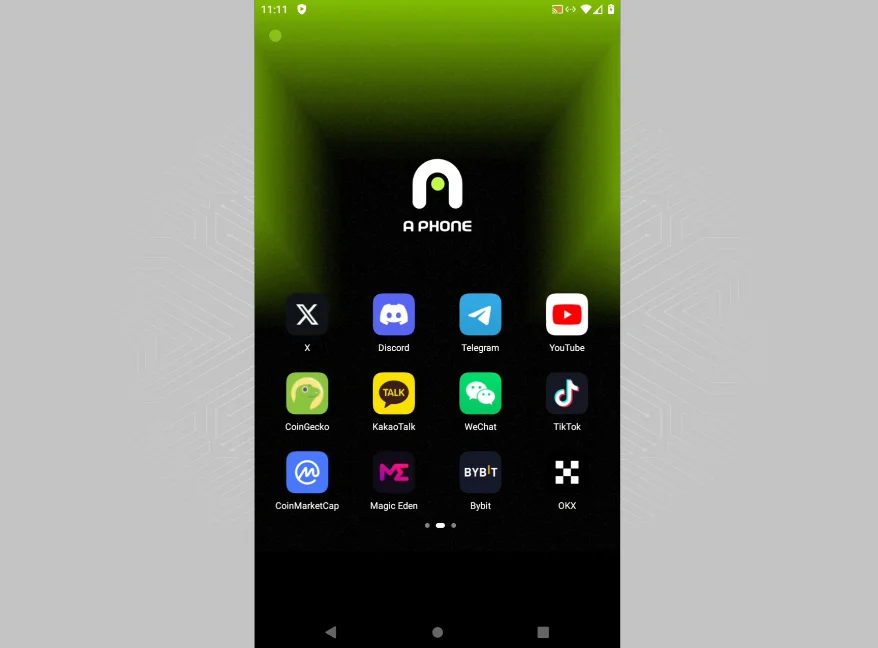A new virtual smartphone application, Aphone, has launched on Solana’s blockchain and will use Aethir’s decentralized cloud infrastructure to revive old mobile devices with obsolete hardware.

Users of mobile devices in developing nations and those with obsolete hardware may utilize a novel virtual smartphone application that operates on Solana’s decentralized cloud infrastructure and blockchain.
The Aphone virtual smartphone, which grants users access to various Web3 and traditional applications, made its Solana ecosystem début on March 7. Following the service’s introduction, iPhone ecosystem development and growth lead Jennifer Booze detailed the service in an email to Cointelegraph.
Aphone is device-agnostic, meaning it can function on any browser, Android, or Apple device, and has the appearance and feel of an Android app. As opposed to replacing a device’s operating system, Booze asserts that its interface, features, and fundamental technology more closely resemble an operating system.
Booze explains, “It’s a decentralized cloud computing-powered smartphone environment in the cloud that users can access from their existing devices to run Web3 applications without requiring local hardware upgrades.”
As a result of the hardware constraints of devices, the group foresees the virtual device serving as a method to acquaint users with Web3 applications and protocols.
By utilizing Aethir, a decentralized cloud-based GPU computing infrastructure, Aphone’s service circumvents the hardware limitations of older smartphone models. Using the cloud service to power the Aphone’s interface and applications grants users access to games and applications that would be unmanageable on a tangible device.
According to Booze, the principal function of the virtual device is to facilitate entry into the broader Web3 ecosystem, given the growing prevalence of smartphones in developing countries and the widespread availability of mobile internet.
“By leveraging Aethir’s decentralized cloud technology, APhone enables these users to experience advanced Web3 applications, NFTs, DeFi platforms, blockchain games and run multiple smartphones on a single device.”
Users can acquire the virtual equivalent of purchasing a new smartphone for $20 per annum. Potential consumers can obtain an Aphone NFT, which grants access to the virtual device. These NFTs are generated and burned on the Solana blockchain.
Additionally, multiple decentralized physical infrastructure networks (DePIN) that operate Solana will be accessible via the device. Helium is a platform that incentivizes users to validate transactions and provide network coverage.
Cointelegraph raised inquiries regarding the rationale behind Aphone’s reliance on blockchain infrastructure and the functionality of its native $PHONE token. Booze stated that utilizing Solana provides increased security and decentralization, faster transaction velocities, and reduced transaction fees.
“These functionalities facilitate a smooth Web3 experience, encompassing the administration of NFTs, tokens, and DApp access.” “Because Aethir’s infrastructure enables the robust processing capabilities necessary for resource-intensive Web3 applications, APhone’s operation is dependent on the integration of blockchain technology,” Booze continues.
Governance and reward incentive mechanisms designed to encourage user participation and engagement will utilize the device’s native token.
Previous coverage by Cointelegraph revealed that DePIN is gaining traction as the cost of resources to fuel AI tools rises. Using Solana’s blockchain to process and facilitate millions of microtransactions with hardware providers and data centers, the newly developed DePIN platform IO.net will enable users to procure GPU computing capacity for machine learning and AI.
